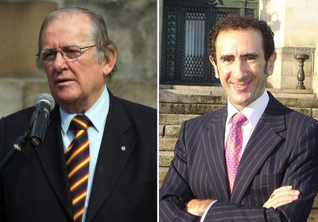
Apr 1, 2015 | News
The ICJ is please to announce the appointment of two new Commissioners: Justice John Lawrence O’Meally (Australia) and Justice Fatsah Ouguergouz (Algeria).
The new Commissioners were elected, by existing Commissioners, by a ballot counted on 13 March 2015.
Justice John Lawrence O’Meally (Australia) is a mediator accredited by the Institute of Arbitrators and Mediators of Australia, and on the New South Wales (NSW) Bar Association’s list of mediators for cases in the Supreme Court of NSW. He is a graduate of the University of Sydney and was admitted to the NSW and Australian Bars in 1964 and then later to the Papua New Guinea Bar and Western Pacific Bar. He has worked as a barrister and judge in Australia, Papua New Guinea, Antigua and Barbados. He has been a Consultant to the Governments of St Lucia on Restructuring the District Court and the Solomon Islands on Restoration of the Legal System. He is a Member of Council of the Australian Section of the ICJ and President of the NSW Branch.
Justice Fatsah Ouguergouz (Algeria) is one of the inaugural judges of the African Court of Human and People’s Rights, first elected in 2006 and then re-elected in 2010 for a six-year term. He graduated in Law from the University of St. Etienne in France and has a PhD in International Law from the Graduate Institute of International Law in Geneva. He has taught Public International Law at the University of Geneva, has served as a Human Rights Officer in Rwanda for the United Nations High Commissioner for Human Rights, worked as Legal Officer at the Office of Legal Affairs of the United Nations in New York and was Secretary of the International Court of Justice at the Hague.
In addition to the two new members, Professor Sir Nigel Rodley was also re-elected to serve a second term as President of the ICJ.
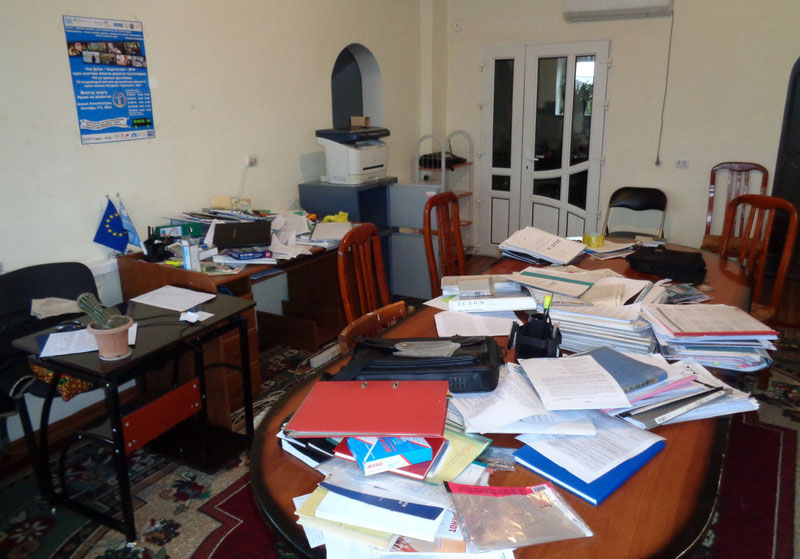
Mar 31, 2015 | Адвокаси, Новости, Статьи
Сегодня МКЮ выразила обеспокоенность в связи с обысками, проведенными в жилище и офисе адвокатов следователями города Ош.
По месту жительства адвоката Валерьяна Вахитова и в офисе правозащитной организации «Бир Дуйно-Кыргызстан», где работали адвокаты Валерьян Вахитов и Хусанбай Салиев, был проведен обыск, в результате которого были изъяты материалы из досье адвокатов. МКЮ считает, что данные обыски составили нарушение права на конфиденциальность общения между адвокатом и подзащитным.
Конфиденциальность общения адвоката со своим подзащитным и тайна адвокатского досье пользуются международно-правовой защитой в рамках права на справедливое судебное разбирательство, а также запрета произвольного вмешательства в право на уважение корреспонденции, частной жизни и (в данном случае) жилища.
Обыски последовали за задержанием Умара Фарука, гражданина США, журналиста, который предположительно собирал данные о межэтнической напряженности в Кыргызской Республике, в частности, на границе с Узбекистаном. 25 марта 2015 года Фарук был задержан сотрудниками Государственного комитета по национальной безопасности (ГКНБ).
При задержании у него был изъят ряд предметов, включая компакт-диски «с видеозаписями выступлений… на религиозную тему и отрывками боевых действий», постановления о привлечении в качестве обвиняемого, вынесенные в отношении подзащитных адвокатов, А.М. Юсупова и И.И. Салибаева, а также визитные карточки обоих адвокатов.
28 марта Умар Фарук был депортирован из Кыргызской Республики в связи с осуществлением сбора данных в отсутствие аккредитации.
Следователь обратился в суд с ходатайством о производстве обыска в помещениях, занимаемых адвокатами, на том основании, что там могут находиться документы, «необходимые при расследовании» уголовного дела № 082-15-0236.
Постановления о производстве обыска в офисе НКО, где работали адвокаты, а также по месту жительства Валерьяна Вахитова были вынесены судьями К.М. Матисаковым и Б.Т. Сатыбалдиевым в ходе отдельных заседаний, состоявшихся 26 и 27 марта.
Как следует из постановления, суд удовлетворил ходатайство следователя о производстве обыска по месту жительства адвоката Вахитова с учетом необходимости «всестороннего, объективного и полного расследования уголовного дела, получения доказательств, необходимых при расследовании дела, неотвратимости наказания за совершенное преступление и в целях государственной безопасности».
Аналогичные мотивы были приведены в постановлении о производстве обыска в офисе «Бир Дуйно-Кыргызстан». Органом следствия были изъяты компьютеры, карты памяти, диктофоны и диски, содержащие сведения по делам клиентов адвокатов.
Адвокат Вахитов сообщил о том, что наряду с другими документами были изъяты файлы по девяти делам, в которых он представляет интересы граждан в договорных органах ООН, включая переписку адвоката с органами ООН.
МКЮ обращает внимание на официальное заявление Государственного комитета по национальной безопасности от 30 марта, в соответствии с которым проведение обыска по месту жительства и работы адвокатов являлось «законным и проходило в рамках УПК КР».
28 марта Совет адвокатов Адвокатуры Кыргызской Республики, который является главным исполнительным органом адвокатуры, распространил открытое письмо, в котором призывает Генерального прокурора Индиру Жолдубаеву «принять самые строгие меры, предусмотренные законом, в отношении сотрудников ГКНБ КР, нарушивших гарантии независимости адвокатской деятельности и неприкосновенности адвокатов».
МКЮ считает, что проведение обысков составило явное нарушение законодательства Кыргызской Республики. В соответствии со статьей 29 Закона «Об адвокатуре Кыргызской Республики и адвокатской деятельности», «истребование, изъятие, осмотр, проверка, копирование документов, сбор и использование информации, связанные с юридической помощью по конкретному уголовному делу, допускаются лишь в случае привлечения адвоката в качестве обвиняемого…».
Уголовное дело в отношении адвоката может быть возбуждено только Генеральным прокурором либо его заместителем (часть 3 статьи 29).
Согласно статье 30 Закона, адвокатской тайной являются любые сведения, связанные с оказанием адвокатом юридической помощи своему доверителю.
Читайте полное заявление здесь:
Kyrgyzstan-Searches of lawyers-Advocacy-2015-RUS (русская версия, PDF)
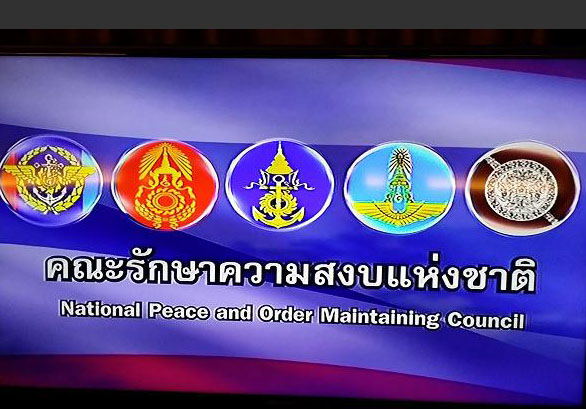
Mar 31, 2015 | News
Thailand must lift martial law and return the country to civilian rule, instead of invoking arbitrary powers under Article 44 of the country’s interim constitution, said the ICJ today.
Today, Prime Minister and head of the ruling National Council for Peace and Order (NCPO), General Prayut Chan-o-cha, announced that he had submitted a revocation of the Martial Law, imposed nationwide on 20 May 2014, to King Bhumibol Adulyadej.
Gen. Prayut stated that in place of Martial Law, he would invoke Article 44 of the Interim Constitution, which effectively gives him the authority to rule without any legal restrictions or accountability.
“Ending Martial Law is a necessary step, but replacing it with Article 44 does not address the serious violations of Thailand’s obligations under international human rights law. Article 44 of the Interim Constitution is drafted so broadly that it could give the head of the junta even greater powers than Martial law,” said Wilder Tayler, Secretary General of the ICJ. “Article 44 would allow the head of the NCPO to issue any orders he wishes under the pretext of strengthening public unity and national security, and also deems any such order to be legal and constitutional, removing any possibility of judicial oversight.”
Article 44 of the interim Constitution gives the NCPO power to give any order deemed necessary for “…the benefit of reform in any field and to strengthen public unity and harmony, or for the prevention, disruption or suppression of any act which undermines public peace and order or national security, the Monarchy, national economics or administration of State affairs …,” and provides that any such order “…is deemed to be legal, constitutional and conclusive…”
“Article 44 violates the fundamental pillars of the rule of law and human rights, including equality, accountability, and predictability. Article 44 could potentially allow for arbitrary rule by the head of the NCPO, so using it would not be a real improvement over the Martial Law, which at least has been in existence since 1914, and has a degree of clarity to its scope and application,” said Tayler.
“The NCPO should revoke Martial Law and also explicitly commit itself to observing Thailand’s international obligations, which means avoiding any use of Article 44,” he added.
International law strictly regulates attempts by governments to suspend or restrict protection for human rights on grounds of emergency.
Such “derogations” are permissible under Article 4 of the International Covenant on Civil and Political Rights (ICCPR), to which Thailand is a State Party, only “in time of public emergency which threatens the life of the nation”.
“The situation in Thailand does not meet the extremely high threshold required for derogating from international human rights law,” said Tayler. “Thai authorities have repeatedly promised a rapid return to the rule of law and respect for human rights in the country, but replacing Martial Law with rule by Article 44 doesn’t suggest an improvement for the rule of law or respect for human rights.”
Thailand-Martial Law-Article 44-News-Press release-2015-THA (Thai version, full text in PDF)
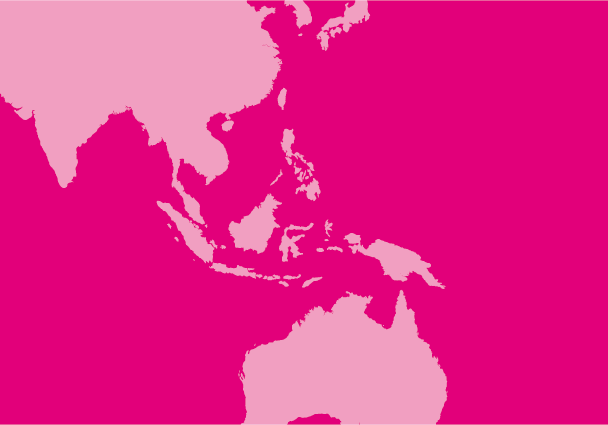
Mar 31, 2015 | News
The present form of the recently tabled draft Prevention of Terrorism Act, also known as POTA, violates international standards and seeks to reintroduce detention without trial, said the ICJ.
The Malaysian government claims that the draft POTA, which was tabled yesterday in Parliament for its first reading, together with 7 other amendments, is aimed at curbing terrorist threats in the country.
“The draft law, as it is now, is susceptible to abuse,” said Emerlynne Gil, ICJ’s International Legal Adviser for Southeast Asia. “It is very disturbing that the POTA has very similar elements that were in the problematic and now repealed 1960 Internal Security Act that was previously used to silence government opposition and curtail freedom of expression in the 1980s.”
For example, the ICJ notes with concern that the draft law allows a “board” that is not a court to order and extend detention for up to four years.
Only one of the members of the board is required to have any legal training at all.
Detention orders issued by the “board” cannot be challenged in any court, except on procedural issues.
The ICJ urges members of Parliament in Malaysia to amend the existing draft law so that it will not reintroduce draconian preventive detention measures, as in the repealed Internal Security Act.
The Parliament of Malaysia should either reject the draft law or amend its provisions to respect human rights.
CONTACT:
Emerlynne Gil, ICJ International Legal Adviser, e: emerlynne.gil(a)icj.org or m: +668 4092 3575
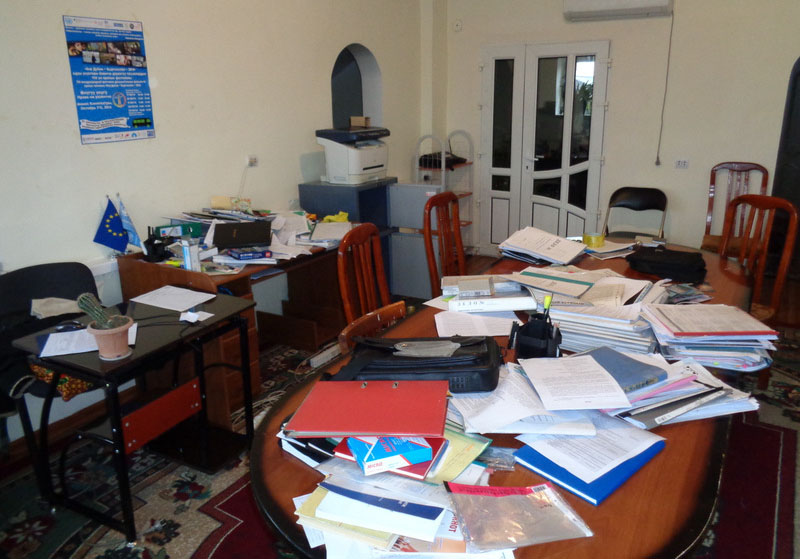
Mar 31, 2015 | Advocacy, News
The ICJ today expressed concern at searches of lawyers’ homes and workplace by Kyrgyz investigators in the city of Osh.
The home of lawyer Valerian Vakhitov and the office of the human rights organization “Bir-Duyno-Kyrgyzstan” (photo) where lawyers Valerian Vakhitov and Khusanbay Saliyev worked, were searched and materials of the lawyers’ cases were seized. The ICJ considers that the searches are violations of the right to confidential communication between a lawyer and his or her client.
The confidentiality of lawyer-client communications and lawyers’ files is protected in international human rights law as part of the right to a fair trial, as well as the prohibition of arbitrary interference with correspondence, privacy and (in this case) home.
The searches followed the arrest of Umar Farooq, a US citizen and journalist who reportedly conducted research on inter-ethnic tensions in the Kyrgyz Republic, in particular near the border with Uzbekistan.
On 25 March 2015, he was arrested by officers of the State Committee of National Security (SCNS) and a number of items in his possession were seized including recordings containing “statements on religious topics and clips of military activities”, copies of charges filed against clients of the two lawyers, A.M. Yusupov and I.I. Salibayev, and the business cards of the two lawyers.
On 28 March, Umar Farooq was expelled from the Kyrgyz Republic on grounds of collection of information without accreditation.
The investigator sought a search warrant for the lawyers’ premises on the grounds that they could contain documents “necessary for the investigation” in criminal case No. 082-15-0236.
Warrants to search the NGO premises where the lawyers worked and to search the residence of Valerian Vakhitov, were issued in separate proceedings on 26 and 27 March by judges K.M. Matisakov and B.T. Satybaldiyev.
According to the search warrant issued by the Court, the search of Lawyer Vakhidov’s home was authorized taking into account the “the need for a full, objective, comprehensive resolution of the crime, obtaining evidence necessary for the investigation of the case, inevitability of the punishment for a crime committed and for the purposes of national security”.
The same reasons were given to authorize searches of the office of “Bir-Duyno-Kyrgyzstan” Investigators seized computers, memory sticks, dictaphones and disks with information on cases in which the lawyers represented clients.
Lawyer Vakhitov reported that among other documents, files relating to nine cases in which he represented individuals before the UN Treaty Bodies, including communication with the UN bodies, had been seized.
The ICJ notes that the State Committee of National Security of the Kyrgyz Republic officially stated, on 30 March, that the searches of work and residence places of lawyers were “legal and within the framework of the CPC of the KR [Criminal Procedure Code of the Kyrgyz Republic]”.
On the same day, the Council of Advokatura, its main executive body, issued a statement calling on the Prosecutor General Indira Zholdubayeva “to take the strictest measures provided by law in regard to the officers of the State Committee of National Security which violated the guarantees of the independence of lawyers’ activity and integrity of lawyers”.
The ICJ considers that the searches are a clear violation of the law of the Kyrgyz Republic. According to Article 29 of the Law On Advokatura and Lawyers’ Activity the Kyrgyz Republic “requisitioning, seizure, examination, inspection, copying documents, collection and use of information related to legal assistance in a particular criminal case are allowed only in the case involving a lawyer as a defendant …”.
A criminal case against a lawyer may be initiated only by the Prosecutor General or her deputy (Article 29.3).
According to article 30 of the Law, information related to providing legal aid to clients is protected as lawyer-client privilege (…).
Read the full statement here:
Kyrgyzstan-Searches of lawyers-Advocacy-2015-ENG (full text in PDF)
Kyrgyzstan-Searches of lawyers-Advocacy-2015-RUS (Russian version in PDF)









